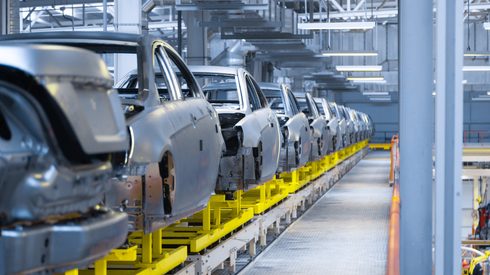The Latin American nation has just awarded the rights to develop lithium from the country’s Uyuni and Oruro salt flats to a consortium which includes Chinese battery maker Contemporary Amperex Technology (CATL) and major Chinese mining company China Molybdenum Company (CMOC). State-owned Yacimientos de Litio Bolivianos (YLB) will play a central role in the project.
The project aims to create two lithium plants, each producing up to 25,000 tonnes of battery-grade lithium carbonate per year.
For a country that has previously preferred to nationalize its natural resources rather than allow foreign companies in to develop them, it is an important step towards establishing the kind of investment framework and infrastructure Bolivia will need to catch up with the lithium production in its neighbor, Chile.
The project also marks a potential turning point in a market that has been racing to access new sources of lithium to develop, with demand for batteries in electric vehicles (EVs) growing faster than production.
The International Energy Agency is predicting a 40-fold increase in demand for lithium by 2040, but according to analysts at Fastmarkets, lithium has been in a supply-demand deficit for the past two years and is expected to be in a 14,300 tonne deficit in 2023.
Still a long way for the sector to go
Right now, the world’s largest producer of lithium is Chile, which accounts for around 25% of current output and has around 11% of total resources, US Geological Survey (USGS) data shows.
By contrast, USGS data reveals that Bolivia has around 24% of the world’s lithium resources, but production is almost non-existent. Argentina meanwhile has around 21% of total lithium resources and accounts for just 6% of world production, meaning there’s work to be done to boost output there too.
The three countries make up the so-called “Lithium Triangle” and have been discussing the possibility of creating their own version of the Organization for Petroleum Exporting Nations (OPEC) for lithium, a concept that is expected to gain traction as the race for raw materials heats up.
Companies disappointed in this round of Bolivian bidding include Russia’s Uranium One as well as US lithium technology startup Lilac Solutions, which is backed by German automotive company BMW and Bill Gates’s Breakthrough Energy Ventures. But Bolivia is still considering other foreign partnerships, which means alternate opportunities exist.
In an era where the US Inflation Reduction Act and the EU Battery Regulation are driving increased traceability through supply chains for the automotive sector and other industries, competition for lithium will only intensify over time.
Lithium became part of the US critical minerals list in 2018, and the criteria expanded in 2022 to include minerals that serve an essential function in one or more energy technologies.
Similar lists exist in major nations and groupings around the world, including in Canada, the UK, Australia, and the EU.
The impact of this push to secure access to lithium has been reflected in prices, which increased sharply in the past two years after bottoming out in 2020, following a revival in demand from the downstream battery sector for EVs.
ESG challenges present uncertainty
But even if the Bolivian government is more amenable than in the past to international partnerships, the challenges of mining in a country where water shortages are common and local opposition to projects is heightened are evident.
There are also uncertainties around the use of the direct extraction technology which companies say alleviates stresses on the fragile ecosystem of the salt flats where lithium mining is planned to take place.
Yet these same challenges exist in projects around the world and will have to be overcome in order to meet the requirements of the energy transition, which seeks to electrify transportation networks and reduce carbon emissions to net-zero by 2050.
The Uyuni and Oruro project will be a litmus test for whether Bolivia can finally turn its lithium resources into reserves that can be sustainably extracted at a profit.
Keep up to date with the latest news and insights in the lithium market by visiting our dedicated lithium page.






